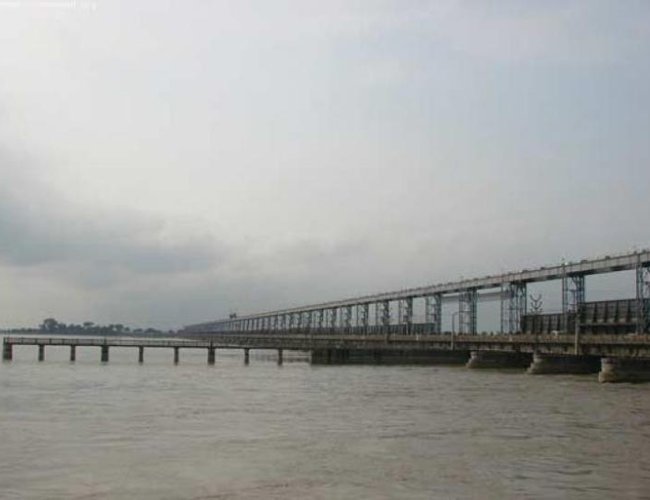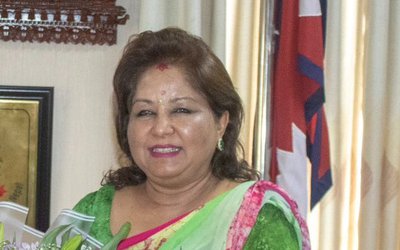
It has been already established based on detailed studies that the proposed Kosi, Karnali, Panchesgwor, West Seti, Burigandaki storage dam projects increase about four times the dry season flow of each of those rivers. Unfortunately there is not any scope to use the augmented flow of these rivers within Nepal, whereas India is desperately in need for water to irrigate its agricultural lands greatly suffering from too often repeated extreme droughts. Apart from it proposed storage dams would be providing much needed relief to India from frequently occurring widespread flooding that result to enormous loss of life and property.
International law provides that Nepal has a right to seek a reasonable share in downstream benefits accruing to India as a result of the use of regulated water discharged after generation of electricity in Nepal. In case of storage dam type hydropower project built in Canada in 1960s the lump sum amount of the Canadian share of downstream benefits to accrue from the USA was invested to build the proposed storage dam hydropower project. This type of arrangement could serve as a model for the development of our large storage dam projects.
ROTI-BETI Bilateral Relation
Nepal must immediately initiate negotiation with India on downstream benefit sharing. Nepal is certain to reach satisfactory agreement with India on downstream benefit sharing. Needless to say that the much praised ROTI-BETI bilateral relation between Nepal and India would be nothing more than empty rhetoric if our two countries failed to agree on downstream benefit sharing principles established under International Law by Canada, USA, Lesotho and South Africa.
International Water Law Making Process
The Article 38 of the Statute of the International Court of Justice provides that the Court, whose function is to decide in accordance with international law- both in general and international water resources- such disputes as are submitted to it shall apply international conventions, treaties between states, customs, general principles of law, etc. Thus it is necessary to analyze various past international treaties particularly related with water resources to judge applicability of international law in respect of our country's claim on downstream benefits.
The Indus and Farakka treaties are two perfect examples that show our neighbouring countries India, Pakistan and Bangladesh fully agreeing that treaties and precedence do serve as the base of international law. Thus they have deliberately inserted a special provision in the above mentioned treaties as presented hereinafter to restrict their applicability as the base of international law.
Article XI of Indus Treaty
Nothing in this Treaty would be construed by the Parties as in any was establishing any general principle of law or precedence.
Treaty of Ganges Water
The Treaty contains at the very beginning in the preamble itself a statement that this Treaty will not affect the rights and entitlements of either country other than those covered by the Treaty and will not establish any general principles of law or precedent.
Downstream Benefit Rights
According to Columbia River Treaty ratified on September 16, 1964, Canada was entitled to receive 50% of the net downstream benefit accruing to the USA due to use of regulated flow discharged from the Canadian hydropower after electricity generation. Canada received additional amount for flood control benefit accruing to the USA. The Treaty is valid for indefinite period. Canada was provided a lump sum payment of US $254 million, equivalent to 30 years' Canadian share of downstream benefit, to help fund the construction of the Treaty project. Apart from it Canada received US $ 67 million for flood control. ( It should be noted that the total construction cost of the proposed Karnali High Dam Project in 1966 was only US $ 240 million) After the expiry of 30 years period Canada still continued to receive its share in downstream benefits.
Lesotho Water Project Treaty was signed in 1986 between Lesotho and South Africa for power generation and supply of regulated water to South Africa. The total cost was estimated to be about US $ 5.2 billion. South Africa was to provide the entire amount needed to implement the project. The amount thus provided to Lesotho would be recovered within a period of 50 years from the 56% Lesotho's share in net downstream benefit accruing from the supply of regulated water to the South Africa. Lesotho would continue to receive downstream benefit indefinitely even after repayment of the money borrowed from South Africa.
Posterity Would Condemn Us
Even for very rich countries like the USA and Canada possessing enormously large water resources the settlement of the issues related to sharing of downstream benefits accruing to lower riparian country from the use of regulated water required direct involvement of the head of government of the country. Three Presidents, Eisenhower, Kennedy and Johnson from the USA side, and two Prime-ministers Diefenbaker and Person from Canadian side were involved at various stages in finalization of the decision to implement the project to use the potential of the Columbia river. Unfortunately our country is entrusting FOREIGN INVESTMENT BOARD to look after all aspects of our large storage dam projects solely from the view point of power generation compromising all other very important components of water resources development.
Mishandling of our large water resources projects would lead to their devastation for ever. Paul D. Terrell, Chief Advisor Consult of Karnali Multipurpose Project has written in an article published in magazine HIMAL in May/June 1991 " Nepal should beware of unintentional give away in hydro development, and not rush to compromise the optimum development for the sake of quick deal. The present institution should be wary of giving away Nepali children's rightful inheritance."

Dr. A.B. Thapa
Thapa writes on water resources issue
- Dudhkosi Multipurpose Project
- Jul 11, 2022
- Dudh-Kosi Power Project And Kosi Treaty
- Sep 27, 2021
- Uttarakhand Glaciers And Recent Disaster: A Lesson To Our Country
- Mar 02, 2021
- Multipurpose Langtang After Melamchi: Inter-Basin Water Transfer
- Nov 04, 2020
- Large Storage Dams Projects Wary of Giving Away Children’s Inheritance
- Dec 22, 2019
















